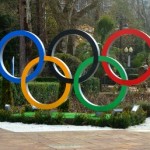Cleaning up after a huge event, such as the Olympics, is a costly process. It’s not just the stadium, but the whole city area that will need maintaining before, during and after the event. Thousands of staff will clean away hundreds of tons of waste, and hopefully much of that waste will be recycled. In the UK alone, the target for recycling waste matter at the 2012 Olympics, was 70%, which included composting products.
In the 2012 London clean up, there were more than 550 tonnes of waste in the Hyde Park and Victoria Park areas alone, from a million visitors passing through, over a 2 week period. This involved just under 4000 staff using 63,000 refuse bags. In the first weekend of the Olympics, the local council, Westminster, cleared away over 85 tonnes of rubbish, in 17000 bags, which involved a team of over 200.
Cleaning up large scale events environmentally
Environmental concerns are a major factor in the cleanup after a major event such as the Olympic Games. The event waste management team will have a major task, with millions of spectators generating vast amounts of rubbish. This major logistical exercise will involve recruiting extra staff for this mammoth task, usually temporary. They will be employed while the games are in progress, in a coordinated plan, across a number of local services. Some of the major concerns include vermin, attracted by the rubbish and pollutants. Protection of the environment and public health will be initial considerations. The Public Health Authorities and Government Waste Management teams, as well as private contractors, will be involved in organising the clean-up of such an event. With a well-organised team, and a strategic plan in place, then there should be no need for a negative reaction from the local population.
An organised system for separating the waste at the point of collection is preferable and less time consuming than sorting through it all later. In the 2012 Olympics, the UK used a 3 color coded system for their trash containers, with recycling (green), food and compostable packaging (orange), and non-recyclable waste (black). By having a pre-event strategy like this will hopefully result in less waste, post-event. Raising awareness among spectators was felt to be vital, to ensure the system worked well. A similar system of color coded containers was used at the waste processing site, to help with the recycling and composting of suitable materials.
It’s not just product waste that is an issue with a huge event like the Olympics. Human waste is also a major consideration. Those 3 million visitors require toilets, and many of those will be temporarily situated. A clever system of recycling used water was implemented at the London Olympics, which helped to reduce the strain on the local water services.
When organising a huge event, like the Olympics, it often brings with it innovation in dealing with issues such as waste management and recycling. It is the vision that comes from such events, that everybody gains from for future changes and improvements.
Waste Management Olympics 2012 UK (parts 4.3 & 6.1 = link used for blog 2)



